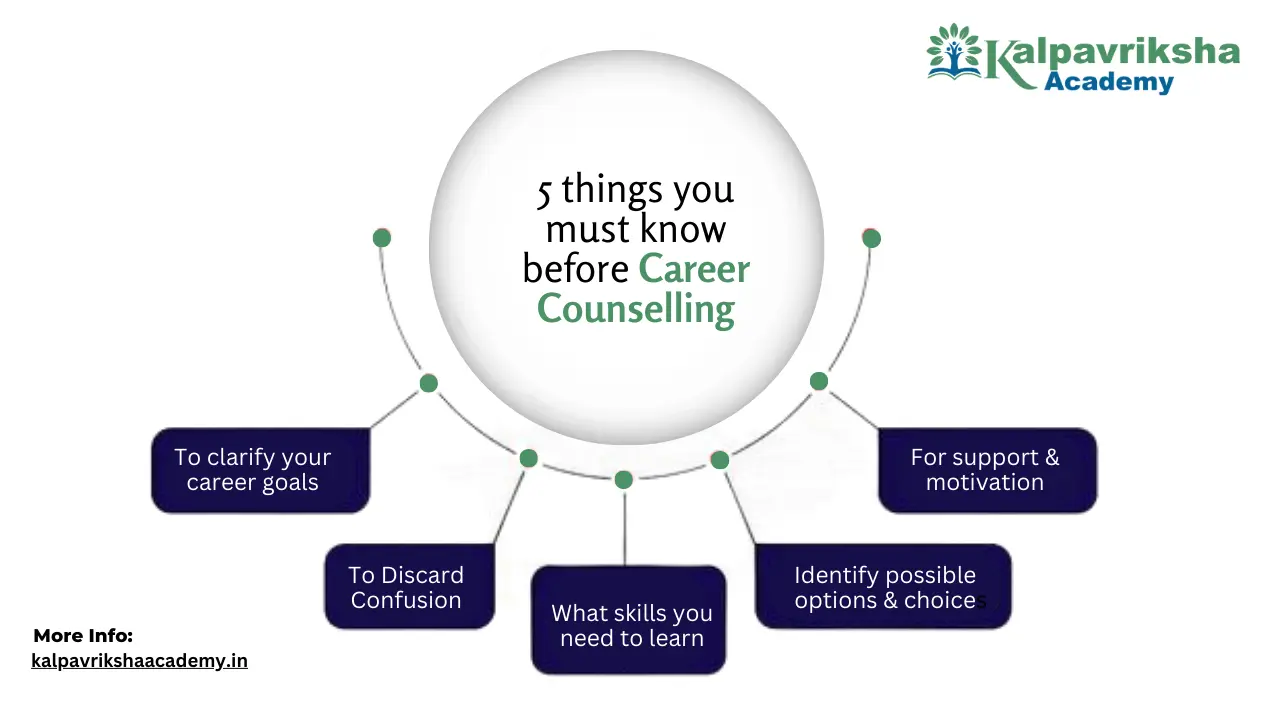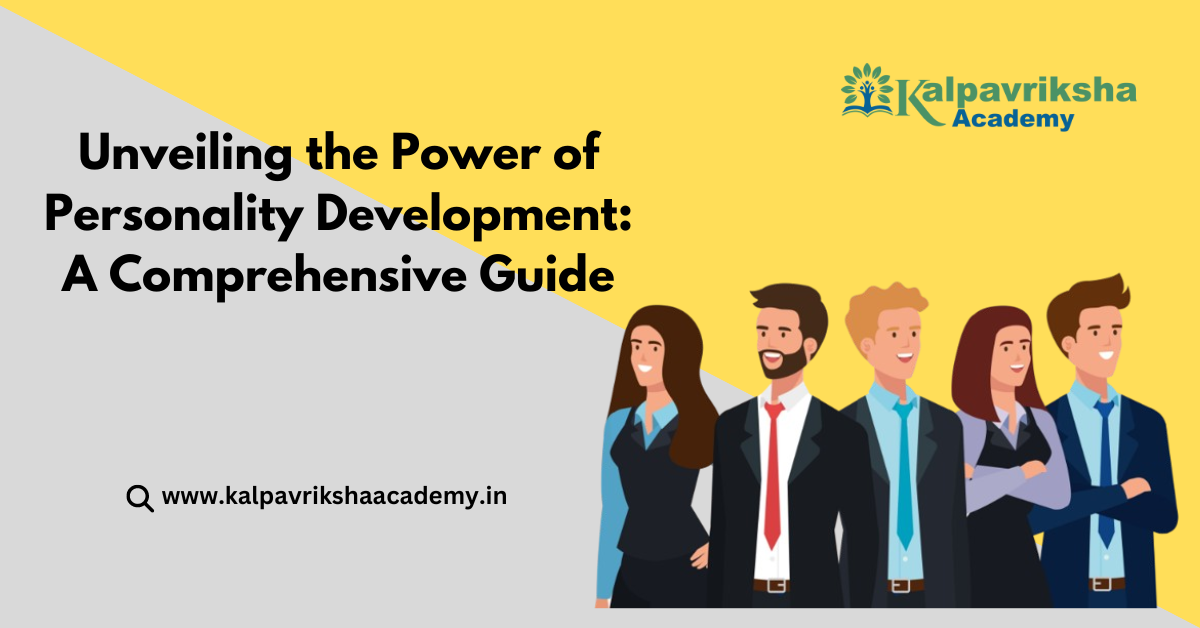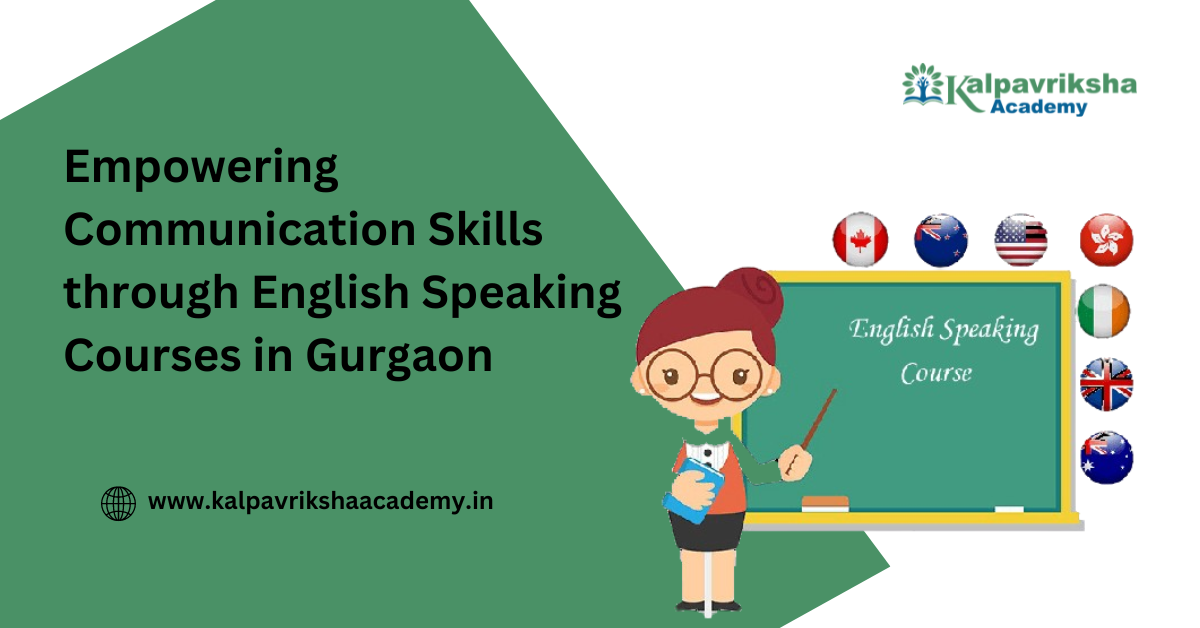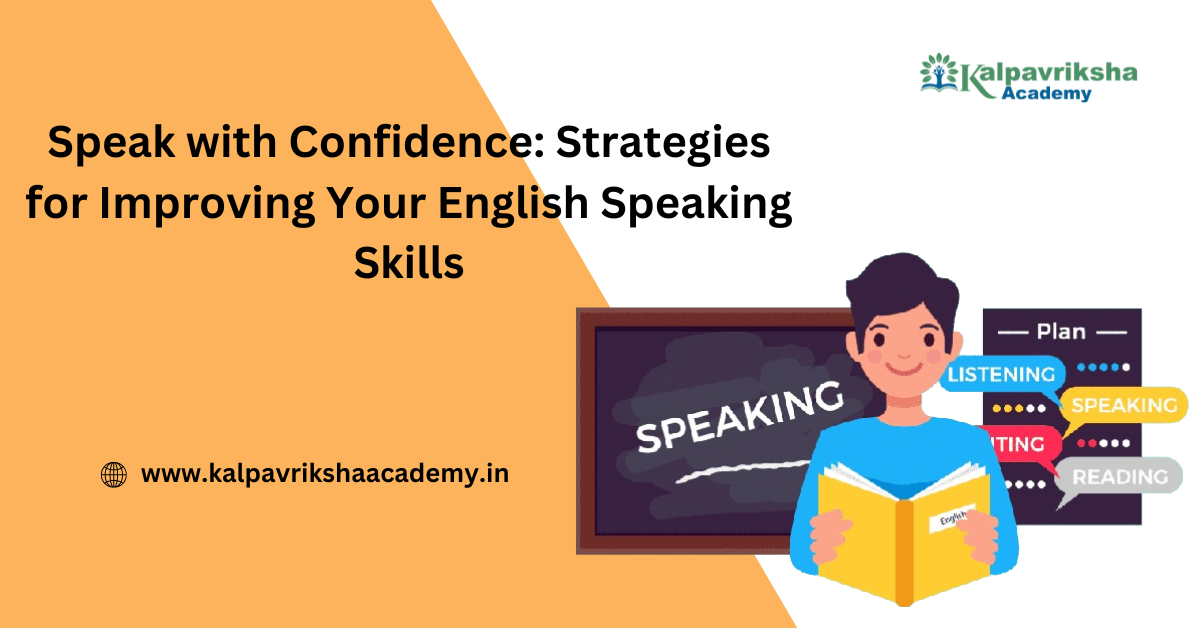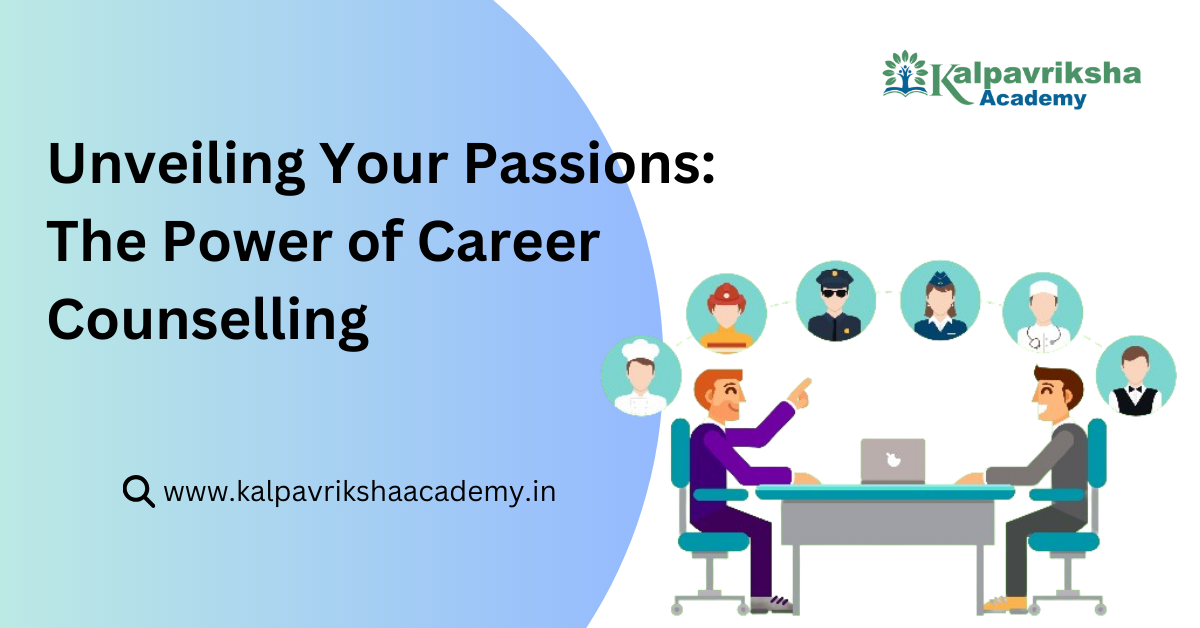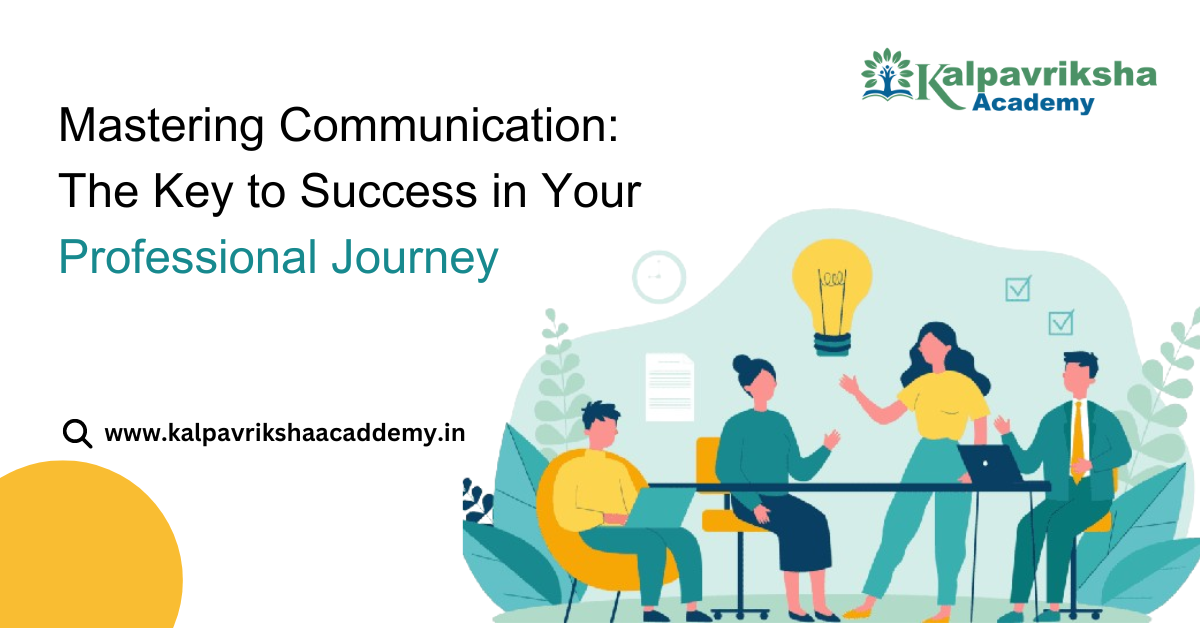5 Things You Must Know Before Career Counselling
Let’s examine these five things of an expert before Career Counselling in detail:
-
Psychometrics Tests
Each pupil is distinct. They’ve their own literacy style, pace, study habits, essential capacities, assignments they find grueling, and areas of interest. These characteristics ultimately become the determining factors that will help them find their ideal profession. still, utmost pupils are ignorant of their own oneness; how also can they decide as significant as choosing a career? To determine a pupil’s Aptitude, Interest, and Personality, the first stage of a career guidance process involves psychometrics.
Psychometric tests are scientific ways to measure effects like a person’s intelligence, personality, and other traits.
-
Personalized Counselling
For scholars, the high academy is a confusing period. In addition to being at a transitional age between nonage and maturity, they must also make life-defining opinions. Constantly, they refrain from venting their bournes and interests in careers for fear of being judged or rejected. thus, the alternate stage of the career guidance procedure involves substantiated career comforting with a trained career counsellor.
-
The utilization of technology to enhance research tools
In the realm of career counselling, it is frequently emphasized that the provision of accurate and timely information to students holds significant significance. Although students have the ability to conduct basic searches on Google and get material from the internet, the vast quantity of available information can occasionally inundate them. The potential outcome of this situation is an increased level of confusion, which hinders the attainment of the necessary clarity required for making informed career decisions. Hence, we have developed a website that offers carefully selected information on courses, universities, and occupations for students to investigate.
-
Guidance for Alumni
It is frequently necessary for students to have a comprehensive comprehension of the practical aspects associated with doing a course of study, enrolling in a specific educational institution, or embarking on a particular professional path. Who is more equipped to provide them with a preview of their future than someone who has firsthand experience in that domain?
The engagement of alumni can yield significant advantages for students in terms of career assistance. The practical aspects of choosing a career path can only be shared by alumni, as they possess insights that cannot be obtained solely from research. Furthermore, our research findings indicate that students exhibit a greater inclination to heed the counsell of their alumni compared to other adults in their social circles.
Within our Career Guidance System, students are provided with the opportunity to access and examine the profiles of alumni. Additionally, they are able to engage in one-on-one interactions with these individuals, allowing for the solicitation of guidance and the acquisition of valuable insights. This platform also offers the capability to see videos created by alumni, further enhancing learning.
-
University Engagement
The concept of university engagement refers to the active involvement and collaboration between universities and other stakeholders, such as industry, government, and community
The ultimate phase of the career advising process for a high school student entails the identification and selection of an appropriate institution of higher education, such as a university or college. However, in order to reach this desired destination, students must engage in extensive research, complete essays and college applications, participate in entrance examinations, and do all the necessary steps. Although career advisers play a significant role in assisting students with various duties, universities themselves serve as an additional resource for students to seek answers to their inquiries and uncertainties.
University engagement facilitates direct interaction between students, parents, and college admission officers, thereby fostering meaningful connections and exchanges. This resource will assist individuals in identifying both conventional and contemporary courses offered by the college, comprehending the admission procedures, and gaining insight into the criteria that colleges consider when evaluating candidates’ profiles.
What to Expect from Career Coaching Sessions
Career counselling is a service provided by trained experts with the goal of guiding people of varying ages, educational levels, job titles, and areas of expertise toward fulfilling professional lives. Client needs might vary widely and may include anything from basic career guidance to assistance in reorienting one’s career midstream.
To have a more fulfilling and successful career, career coaching is meant to boost one’s self-assurance in the workplace, provide clarity on one’s professional aspirations, highlight gaps in one’s skill set, motivate the growth of said gap, and ultimately lead to the achievement of said goal.
Career counselling often entails the following process:
1. Information gathering
Sessions for career counselling typically last between 45 and an hour and occur once a week (though some clients prefer biweekly or monthly meetings). The initial few sessions are used to get to know each other, which paves the way for the client to feel safe enough to discuss their professional goals.
2. Assessment
Evaluation of values, skills, goals, strengths, and limitations follows the initial meetings and data collection. Using tools like personality and aptitude tests, exercises that highlight the client’s prior work successes, analysis of the client’s job detailing, a listing of the client’s hobbies and interests, etc., a career coach can assist their client in better understanding their career alternatives and analyze work problems.
3. Tools & techniques
Those who call themselves “career coaches” typically have extensive training and experience in helping others build successful professional careers. Career coaches guide their clients through the process of using the resources available to them to increase the likelihood that they will find rewarding work.
4. Customized actionable plans
The following phase, once the career coach and client have a firm grasp of the client’s current work circumstances, is to establish an action plan that can start the client on a road of growth and progress toward their professional goals.
A qualified career coach will use a variety of techniques to help their client gradually incorporate their preferences, talents, experience, and knowledge into a systematic, individualized action plan. These techniques include active listening, assisting in research on the client’s career options, promoting novel thought processes, encouraging the client to move outside of their comfort zone and embrace change, identifying the client’s barriers and actively working towards reducing them, and so on.
5. Tools & techniques
Those who call themselves “career coaches” typically have extensive training and experience in helping others build successful professional careers. Career coaches guide their clients through the process of using the resources available to them to increase the likelihood that they will find rewarding work.
Among these are:
- Helping the client make the most of online resources (job boards, professional networks like LinkedIn, etc.) to search for and apply for jobs, and to develop a strong professional network that attracts the attention of hiring managers and leads to fruitful interviews and placements.
- Helping the client get ready for a major interview by providing advice on how to answer questions, project an air of quiet confidence, and more.
- Helping the customer create an impressive first impression with their resume, portfolio, online profile, and cover letter.
6. Accountability
As was earlier mentioned, the only way for career coaching to be effective is if the coachee is fully invested in seeing it through. Before and after each session, it is the coach’s duty to check in with the client to make sure they are still dedicated to carrying out the agreed-upon action steps and completing the tasks at hand.
Some people have wrong beliefs, such as thinking that a single session can fix everything and give them a big promotion. Or they may believe that the career coaches themselves will be able to help them land a fantastic position. Or that if they only send out a well-written resume, they’ll be inundated with fantastic employment offers.
How Career Counselling Can Help You Find Your Dream Job?
Finding your dream job might be difficult, but with the help of a trained professional, you can get the support and guidance you need through career counselling. It can assist you in defining your career direction, conducting in-depth research into possible career paths, making decisions that are in line with your values and interests, developing a concrete plan for your future, overcoming obstacles along the way, bolstering your self-assurance and motivation, broadening your professional network, and taking advantage of useful resources and opportunities. You may take charge of your career and make well-informed decisions that will lead to advancement with the assistance of career counselling.

